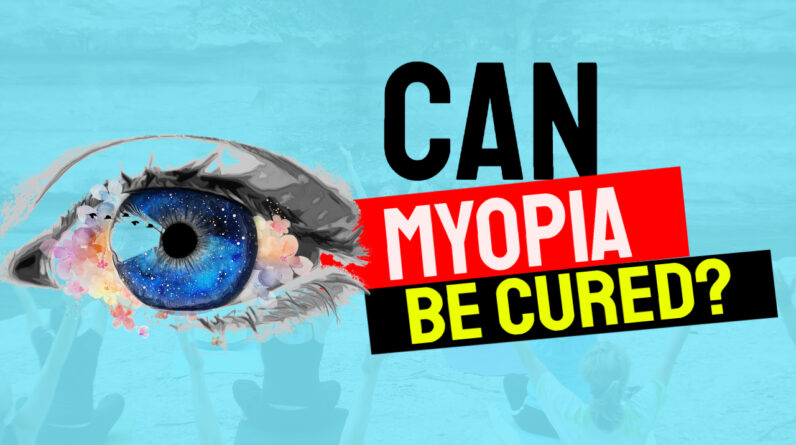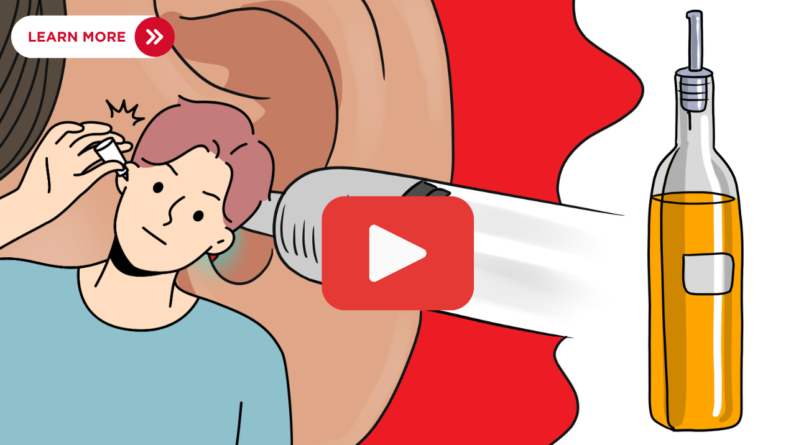
Natural myopia treatment is a hot topic in the eye health community, as more and more people are seeking alternatives to traditional treatments such as corrective lenses and surgery. Myopia, commonly known as nearsightedness, is a refractive error that affects millions of people worldwide. It occurs when the eye is too long or the cornea is too curved, causing light to focus in front of the retina instead of on it. This results in blurred distance vision and difficulty seeing objects far away.
Table of Contents
Natural Myopia Treatment: Effective Ways to Improve Your Vision Without Surgery
Find out More About Natural Myopia Treatment
Understanding myopia and its causes is essential in exploring natural treatment options. While genetics play a significant role in the development of myopia, environmental factors such as excessive near work and lack of outdoor time can also contribute to its progression. Natural myopia treatments aim to address these factors by promoting healthy eye habits and providing the nutrients and conditions necessary for optimal eye health.
Key Takeaways:
- Natural myopia treatment is a popular alternative to traditional treatments such as corrective lenses and surgery.
- Myopia is a refractive error caused by genetics and environmental factors such as excessive near work and lack of outdoor time.
- Natural myopia treatments aim to promote healthy eye habits and provide the nutrients and conditions necessary for optimal eye health.
Related Posts:
Understanding Myopia

Find out More About Natural Myopia Cures
Myopia, also known as nearsightedness, is a common eye condition that affects millions of people worldwide. It is a refractive error that occurs when the eye does not bend or refract light properly, causing distant objects to appear blurry. This occurs when the eyeball is too long or the cornea is too curved, which causes light to focus in front of the retina instead of on it.
Definition and Causes
Myopia is a common eye condition that affects people of all ages. It usually develops during childhood and can progress throughout adolescence. In some cases, it can also develop in adulthood. The exact cause of myopia is not known, but it is believed to be a combination of genetic and environmental factors. Some of the risk factors for myopia include:
- Family history of myopia
- Prolonged near work, such as reading or using a computer
- Lack of outdoor activity
- Poor lighting conditions
- High levels of stress
Symptoms and Diagnosis
The most common symptom of myopia is blurry vision when looking at distant objects. Other symptoms may include eye strain, headaches, and squinting. Myopia is usually diagnosed during a comprehensive eye exam. The exam may include a visual acuity test, a refraction test, and a dilated eye exam. The visual acuity test measures how well a person can see at various distances, while the refraction test determines the amount of nearsightedness. The dilated eye exam allows the eye doctor to examine the back of the eye for any signs of damage or disease.
Related Posts:
Natural Myopia Treatment
Myopia is a common vision problem that affects millions of people worldwide. While conventional treatments like corrective lenses and surgery can help manage myopia, many people prefer natural treatment options. Here are some natural myopia treatments that may help improve vision:
Dietary Changes
Dietary changes can play a significant role in managing myopia. A diet rich in nutrients like vitamin A, beta-carotene, vitamin C, vitamin E, zinc, lutein, and zeaxanthin can help improve vision. Foods like leafy greens, carrots, sweet potatoes, almonds, and citrus fruits are rich in these nutrients and can be included in one’s diet. Additionally, omega-3 fatty acids found in fish like salmon and tuna can also help improve eye health.
Eye Exercises
Eye exercises can help strengthen the eye muscles and improve vision. Some exercises that may be helpful include:
- Focusing on distant objects for a few minutes each day
- Shifting focus between near and far objects
- Blinking frequently to reduce eye strain
- Palming – covering the eyes with the palms of the hands to relax the eye muscles
Lifestyle Modifications
Making lifestyle modifications can also help manage myopia. Here are some things to consider:
- Limiting screen time to reduce eye strain
- Taking breaks during prolonged periods of reading or computer work
- Getting enough sleep to allow the eyes to rest
- Getting regular exercise to improve overall health
While natural myopia treatments may not cure myopia, they can help manage symptoms and improve vision. It’s important to consult with a healthcare professional before starting any new treatment regimen.
Related Posts:
Natural Myopia Treatment
Effectiveness and Limitations of Natural Treatments
Natural treatments for myopia have been gaining popularity in recent years as people are looking for alternatives to traditional methods like corrective lenses or surgery. However, while some natural treatments have shown promise, others may not be as effective. Here’s what you need to know about the effectiveness and limitations of natural treatments for myopia.
Effectiveness
Eye Exercises
Eye exercises like the Bates method or the Gokhale method are often recommended as a natural way to improve vision and reduce myopia. These exercises involve techniques like palming, sunning, and shifting focus, which are believed to help relax the eyes and improve their ability to focus. While there is limited scientific evidence to support the effectiveness of these exercises, some people have reported improved vision after practicing them regularly.
Diet and Nutrition
A healthy diet rich in nutrients like vitamin A, C, and E, omega-3 fatty acids, and zinc can help maintain good eye health and reduce the risk of myopia progression. Foods like leafy greens, citrus fruits, nuts, and fish are all good sources of these nutrients. While a healthy diet alone may not cure myopia, it can certainly help prevent it from getting worse.
Outdoor Time
Spending more time outdoors has been shown to reduce the risk of myopia in children and adolescents. This is believed to be due to the brighter light and greater distance between objects outdoors, which helps the eyes to focus better. While more research is needed to fully understand the link between outdoor time and myopia, it’s a simple and safe way to promote eye health.
Limitations
Lack of Scientific Evidence
One of the biggest limitations of natural treatments for myopia is the lack of scientific evidence to support their effectiveness. While some studies have shown promising results for certain treatments like eye exercises or outdoor time, more research is needed to confirm these findings and determine the best methods for myopia prevention and treatment.
Inconsistent Results
Even when natural treatments do show promise, their effectiveness can vary greatly from person to person. For example, while some people may see significant improvement in their vision after practicing eye exercises, others may not experience any noticeable changes. This can make it difficult to determine which treatments are truly effective and which are not.
Not a Substitute for Traditional Methods
Finally, it’s important to remember that natural treatments should not be seen as a substitute for traditional methods like corrective lenses or surgery. While these treatments may not be ideal for everyone, they have been proven to be effective in many cases and should be considered as a viable option for myopia treatment.
Natural Myopia Treatment: Consulting a Professional
While natural remedies can be effective in treating myopia, it is important to consult with a professional before attempting any treatment. A licensed optometrist or ophthalmologist can provide a comprehensive eye exam to determine the severity of myopia and recommend the best course of treatment.
During the exam, the eye doctor will perform a series of tests to assess the patient’s visual acuity and determine the degree of nearsightedness. They may also check for other eye conditions that could be contributing to the myopia.
Based on the results of the exam, the eye doctor may recommend a variety of treatment options, including glasses, contact lenses, or refractive surgery. They may also provide advice on lifestyle changes that can help improve overall eye health, such as getting enough sleep, reducing screen time, and maintaining a healthy diet.
It is important to follow the eye doctor’s recommendations closely and attend regular check-ups to monitor any changes in vision. Failure to do so can result in further vision problems or complications.
In addition to consulting with a professional, it is important to do thorough research before attempting any natural remedies for myopia. Some remedies may be ineffective or even harmful if not used properly. It is always best to err on the side of caution and seek professional advice before trying any new treatment.
Conclusion
While there is no known cure for myopia, there are several natural treatments that have shown promise in slowing down its progression. These treatments include spending more time outdoors, reducing screen time, practicing eye exercises, and maintaining a healthy diet.
Studies have shown that spending at least two hours a day outdoors can significantly reduce the risk of myopia. This is thought to be due to the increased exposure to natural light, which helps regulate the growth of the eye.
Reducing screen time is also important, as prolonged use of electronic devices has been linked to an increased risk of myopia. Eye exercises, such as focusing on distant objects and blinking frequently, can help reduce eye strain and improve overall eye health.
Maintaining a healthy diet that is rich in nutrients such as vitamin A, vitamin C, and omega-3 fatty acids can also help prevent myopia. Foods such as leafy greens, citrus fruits, and fatty fish are all good sources of these nutrients.
While natural treatments for myopia may not be a cure, they can be effective in slowing down its progression and improving overall eye health. By incorporating these treatments into their daily routine, individuals with myopia can take control of their eye health and reduce their risk of developing more serious eye conditions later in life.
Natural Myopia Treatment:
Frequently Asked Questions
Can myopia be cured in childhood?
Myopia can be corrected in childhood, but it cannot be cured completely. It is important to diagnose and treat myopia early in childhood to prevent it from worsening. Myopia control methods such as orthokeratology, atropine eye drops, and multifocal contact lenses can be used to slow down the progression of myopia in children.
What is myopia?
Myopia, also known as nearsightedness, is a common refractive error where distant objects appear blurry while close objects appear clear. Myopia occurs when the eyeball is too long or the cornea is too curved, causing light to focus in front of the retina instead of on it. Myopia can be corrected with glasses, contact lenses, or refractive surgery.
Can myopia be cured by eye exercises?
There is no scientific evidence to support the claim that eye exercises can cure myopia. However, eye exercises can help alleviate eye strain and improve visual acuity in some cases. Eye exercises such as the 20-20-20 rule, where one takes a break from looking at a screen every 20 minutes and looks at something 20 feet away for 20 seconds, can help reduce eye fatigue.
How to correct myopia with glasses?
Myopia can be corrected with glasses that have lenses with a negative power. The lenses bend light rays outward to compensate for the extra curvature of the cornea or the elongation of the eyeball. The degree of myopia is measured in diopters, which indicates the strength of the lenses required to correct the refractive error.
Can myopia be cured by surgery?
Myopia can be corrected with refractive surgery, such as LASIK or PRK, which reshape the cornea to improve its ability to focus light onto the retina. However, surgery is not a cure for myopia and there are risks associated with the procedure. It is important to discuss the risks and benefits of refractive surgery with an ophthalmologist before considering the procedure.
How can I reduce myopia and improve my eyesight naturally?
There are several natural ways to reduce myopia and improve eyesight, such as spending more time outdoors, taking frequent breaks from near work, maintaining a healthy diet, and practicing good eye hygiene. However, it is important to note that these methods cannot cure myopia and may not be effective for everyone. It is recommended to consult an eye care professional before trying any natural remedies.




